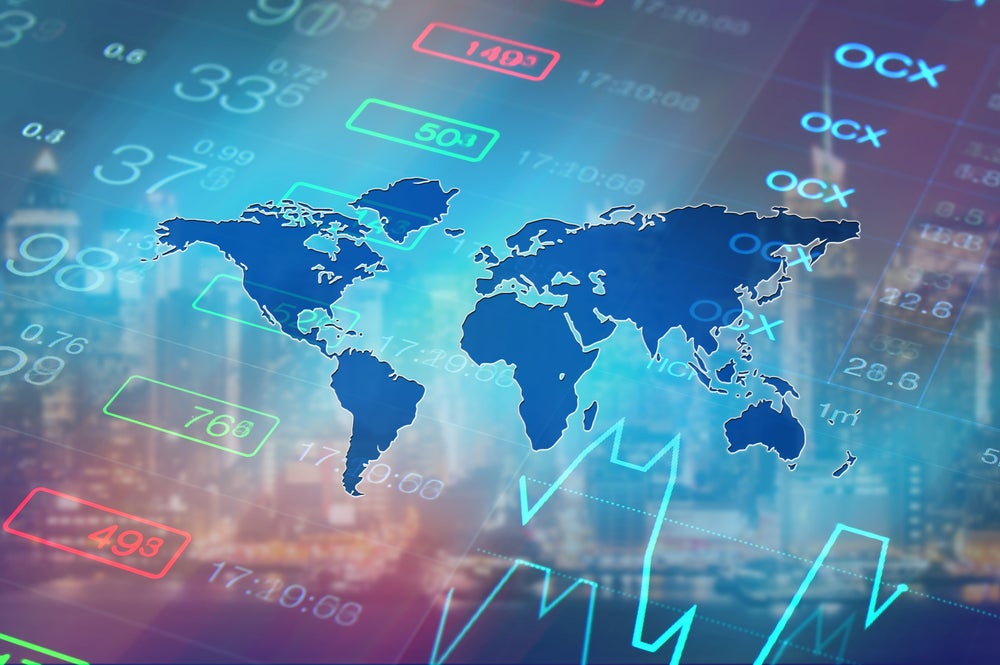
Despite the overwhelming scientific opinion that if we are to survive climate change the global economy will need to reach net-zero greenhouse emissions by mid-century, too little is being done by governments to put in place a plan to net zero, but a push for change is coming from non-governmental agencies and the private sector, writes GlobalData’s Warren Wilson.
 The financial sector is adding more pressure for net-zero, warning that climate risk is financial risk. Large asset managers are beginning to vote against the management of companies they believe are not adequately addressing climate risk in their business strategies.
The financial sector is adding more pressure for net-zero, warning that climate risk is financial risk. Large asset managers are beginning to vote against the management of companies they believe are not adequately addressing climate risk in their business strategies.
Together, these forces are creating a market-based mechanism in which climate action is becoming a competitive differentiator. Companies taking climate action can expect to attract more – and more loyal – customers, partners and employees. Other things being equal, this will drive profits and win favour with investors. These interlocking forces create a climate action feedback loop that rewards and reinforces corporate climate action, prompting more of it. The feedback loop is helping to accomplish what governments have not yet achieved.
There is not yet enough transparency or accountability for the feedback loop to be fully effective. It requires more transparency so that all key stakeholders – consumers, partners, employees and investors – can make informed decisions about which companies to support. It requires more accountability so that companies are held to their climate promises, and false claims – greenwashing – are exposed. If these are in place, it will be easier for all stakeholders to participate.
Still, hundreds of companies have already made commitments to reach net-zero by 2050, with more than 100 committing to a 2040 target. We expect that the pace of commitments will increase as early movers demonstrate that decarbonisation is possible and that it brings market rewards sufficient to draw more participation and accelerate the climate action feedback loop. In years, not decades, stakeholders will be able to choose net-zero providers for a wide range of products and services.
Banks and bankers
Banks can be influential actors when it comes to ESG. They contribute substantially to GHG emissions through their lending portfolios. For example, a recent study of UK banks found that they provided loans and investments for projects and companies that emitted 805 million tonnes of CO2 in 2019, twice the UK’s annual carbon emissions.
How well do you really know your competitors?
Access the most comprehensive Company Profiles on the market, powered by GlobalData. Save hours of research. Gain competitive edge.

Thank you!
Your download email will arrive shortly
Not ready to buy yet? Download a free sample
We are confident about the unique quality of our Company Profiles. However, we want you to make the most beneficial decision for your business, so we offer a free sample that you can download by submitting the below form
By GlobalDataUnder pressure from shareholders, they are reducing their indirect emissions by reining in their fossil-fuel investments and increasing their low-carbon investments.
Every company must recognise that the science is clear, and the need for climate action will only increase. It is an ‘all hands on deck’ moment that calls for an ‘all of the above’ approach – regulation, voluntary action, technology innovation and self-interested action by companies seeking competitive advantage as they balance near-term and long-term business strategies. Inaction is not an option.
This blog is an extract from ‘Climate Change’, the latest in a series of ESG thematic reports from GlobalData.
Access the full report here.







